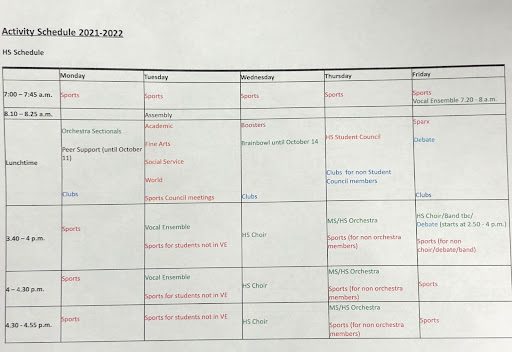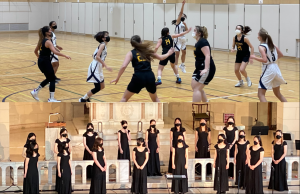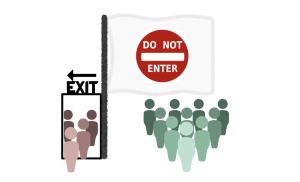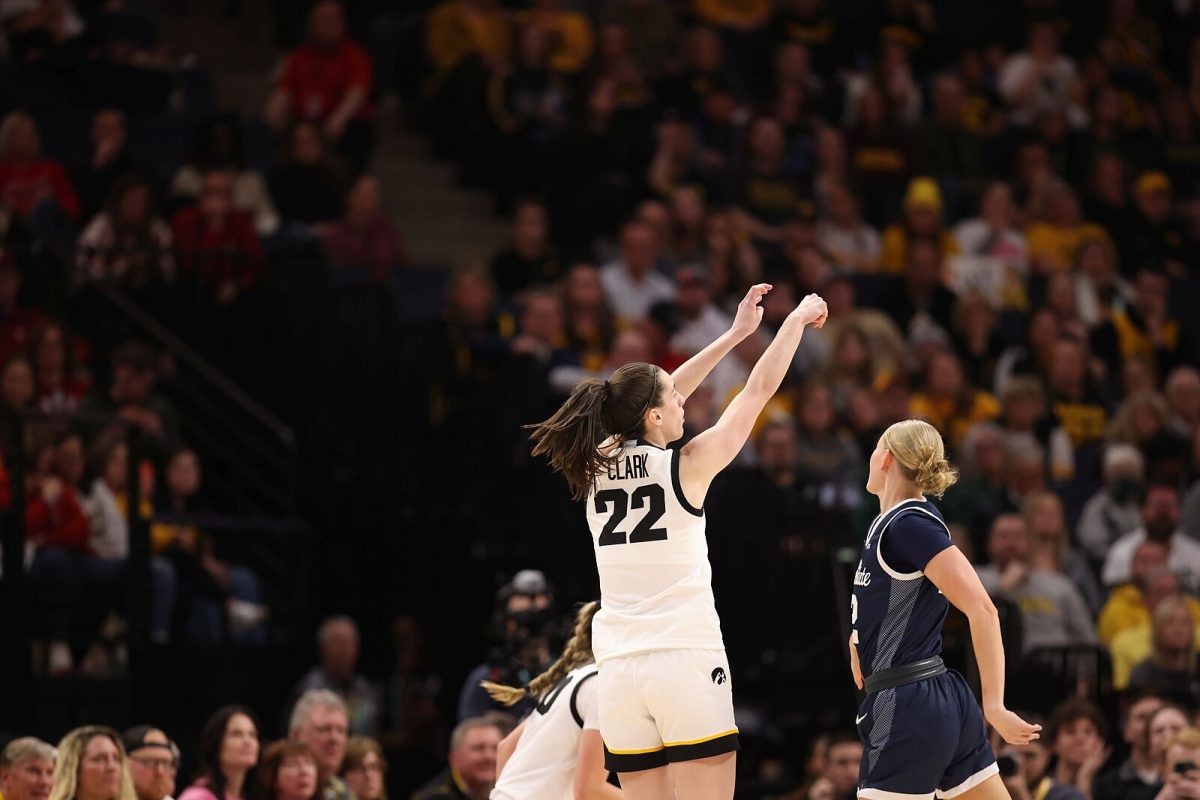Advice on how to make your choice
February 23, 2022
These students’ stories represent many different approaches towards deciding between and committing to your extracurricular activities. But how should you approach this process? How can you make sure that you make the right decision?
Here are some questions based on the advice of our coaches and directors to help guide you along the process of making your choice.
1. Which activity are you the most passionate about?
The most important thing to consider when choosing your extracurricular path is how strong your interest is. For some of us, this distinction isn’t clear. However, especially looking into your future, it is important to learn how to prioritize your interests.
Coach Ettl from the PE Department discussed the importance of considering all of your responsibilities before making a decision to ensure that you are ready to make a full commitment. “We want our student-athletes to be (…) committed to their sports, [but] (…) understand that they have other responsibilities as well,” she said. “It conflicts their decision-making, but it also helps them decide what they really want to pursue.” Balancing your passion and your responsibilities also means looking into the future and seeing how your decision today can affect your future. “Depending on their goals (..) they can decide how they’re going to focus their energy and attention,” said Coach Barnett, one of the varsity basketball coaches.
Of course, we all have multiple interests and talents, all of which we would pursue in an ideal world. Even so, prioritization is a difficult reality that we will face one day. Practicing this skill now will prepare you for the decisions you will make in university, as well as after you leave the school system. “And maybe that means that you’re not going to do music, or you’re not going to do sports, which is unfortunate, but [it] happens in real life,” said Ms. Horn, the director of the middle school and high school choirs and the HS Vocal Ensemble. “You just need to weigh your options and make your decision.”
2. Which activity will allow you to perform to your best potential?
Consider which extracurricular commitment will help you best demonstrate your strengths and lead you to future opportunities.
Ms. Shull, the debate team advisor, discussed how she used this question with a student who was struggling to decide between debate and music. “What I asked was, ‘What opportunities will each extra-curricular open for you in the future?’” she said. Ultimately, the student chose to continue pursuing music, since the leadership potential she had in the ensemble was greater than she had on the debate team.

Thinking about future opportunities in this way may mean that you decide not to continue pursuing all of the activities you were once part of or are passionate about. Even so, any skills you gained through one activity can contribute to your success in another if you can successfully apply them and use them to your advantage. Coach Barnett explained how you can change your mindset on prioritization by considering future potential. “Another way to look at it is, ‘Wow, I’ve accumulated all these skills. How can I make them work for what my interests are now?’” she said. “Nothing is wasted. All of these skills will help you.” She herself was once a part of many different activities, including various sports and singing. Later, she decided to focus her attention on basketball, and although her other passions took a smaller stage, they never disappeared from her life. “All those things helped me gather the skills I needed to be who I am now.” Prioritizing your interests based on your potential does not mean that all of your other skills are wasted; they’ll just be applied in a different way.
3. What kind of workload will balancing these commitments entail?
After you have established which activities you are passionate about and will help you reach your best potential, you must weigh them against their time commitment and workloads.
Though this includes mandatory practice/rehearsal times, you must also consider the time commitment you will have to make beyond them. Will you need to practice the skills you learned during activity time on your own? If so, for how long? How often? Ms. Horn explained that this commitment can vary from activity to activity. For example, high school choir requires little at-home practice time, and students will learn 90% of the repertoire during rehearsals. “I think a different story is Vocal Ensemble.” With a more challenging repertoire and fewer members, committing to the Vocal Ensemble requires students to do some work on their own, to “be sure you are doing everything you can for the group to succeed.”
Ms. Shull described conditions for the Debate team similarly. “It is a time commitment,” she said. Preparing for practice debates and tournaments can also be anxiety-producing for some students. Tournament dates are included in the school testing calendar so that teachers could consider the workload of Debate members when choosing testing dates.
Once you have committed to an activity, you want to make sure that you have enough time to make the most out of the opportunity you have been given. “The more that you’re able to put into it, the more you can get out of it,” said Ms. Shull.

Another issue that can arise, especially if you are participating in multiple activities, is scheduling conflicts. The school has an activities schedule, outlining the times designated for each extracurricular activity so that clashes can be avoided as much as possible. Despite the administration’s best efforts, there are certain activities that will inevitably conflict, and have conflicted for years. All of the coaches and directors have encountered this issue with many students. “We had one student come in and ask, ‘When are basketball practices going to be?’, and we told her,” said Mr. Carreon, the head of the PE department. “She [said,] ‘Oh, then I can’t try out,’ and (…) it was because of Vocal Ensemble. She was committed to that.” Similarly, students are forced to choose between Debate and high school choir because inter-school debates and choir rehearsals are scheduled for the same times.
Although these conflicts can be frustrating, it is important to understand the effort that was put into making the extracurricular schedule as accommodating as possible to the demands of every department. Mr. Carreon explained that he was aware of the amount of sacrifice and compromise that each teacher had to make in order to create the current structure.
But above all else, you must prioritize your own health. Considering time commitments also means taking care of yourself by making sure not to overcommit. Filling out your entire schedule deprives you of the time to relax and focus on your mental health. “One of the issues that come up more often for students in their Sophomore, Junior, and Senior years is that they are overcommitted,” said Mr. Carreon. Between academic work, extracurriculars, and commitments outside of school, students can easily become overwhelmed by the responsibility and pressure of taking on more than they can handle. If you do not give yourself enough time to take breaks, you won’t be able to enjoy high school life.
4. Who can you talk to to help you make this decision?
It can be nice to talk to others for advice or moral support on your decision. Rio T. explained that, in making her choice, she talked to some upperclassmen who had experienced a similar situation before. In addition to other students, it is a good idea to talk to your coaches and directors, even if it may seem a little intimidating to do so. They are the ones who are best equipped to advise you, and all of them have said that they would be more than happy to talk to their students, and would not take offense by their choice. “I don’t take those decisions personally,” said Ms. Horn. “The decision you make isn’t about me. It’s about you and the activity you chose.” The important thing is to be upfront and honest with your coaches about your situation. “Even if you don’t end up choosing my team, I still want to support you,” said Ms. Shull.























































